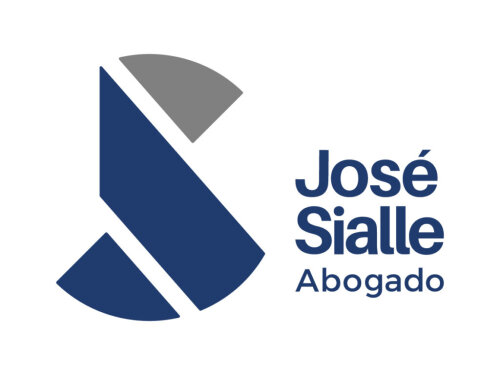Best Will & Testament Lawyers in Córdoba
Share your needs with us, get contacted by law firms.
Free. Takes 2 min.
List of the best lawyers in Córdoba, Argentina
About Will & Testament Law in Córdoba, Argentina
Wills and succession in Córdoba are governed primarily by the national Civil and Commercial Code. The Code sets out how a person may dispose of their property at death, the formal requirements for valid wills, the rights of close relatives, and the procedures to transfer assets after death. Provincial rules and court practices in Córdoba influence how succession cases are processed, taxed and registered in practice. If you make a valid will in Córdoba, you can direct who receives your assets, name an executor - called an albacea - and make arrangements for guardians for minor children.
Why You May Need a Lawyer
You may need a lawyer for wills and succession for many reasons:
- To draft a will that meets formal legal requirements, reducing the risk of later invalidation.
- To confirm which heirs have forced-rights or reserved portions and to calculate how much of the estate you can freely dispose of.
- To handle complex estates that include businesses, real estate, foreign assets or substantial debt.
- To advise on tax obligations and minimize transfer taxes and other costs where lawful planning is possible.
- To represent you in contested matters - for example when heirs or creditors dispute the will.
- To prepare and file the necessary succession or probate proceedings with the courts or applicable authorities in Córdoba.
- To draft related documents - life trusts, powers of attorney, prenuptial agreements and clauses dealing with second marriages or blended families.
Local Laws Overview
Key points to understand about wills and succession law that apply in Córdoba:
- National framework - The Civil and Commercial Code of the Nation provides the substantive rules that regulate wills, forced heirship, testamentary formalities and succession procedure. Those national rules are applied by Córdoba courts and notaries.
- Types of wills - The law recognizes different types of wills. Common forms include public wills executed before a notary and witnesses, closed wills delivered sealed to a notary, and holographic wills written and signed entirely by the testator. Each type has formal requirements to ensure validity.
- Forced heirship - Close relatives such as children, descendants, ascendants and the spouse have protection under the law. The testator cannot freely dispose of the entire estate if forced heirs exist. The protected portion - called the reserved portion or legítima - is legally safeguarded and cannot be infringed by a testamentary disposition.
- Executors - A testator can appoint an albacea to administer the estate and carry out the dispositions of the will. The albacea may need to obtain judicial or notarial authorization to act, and may be required to render accounts to heirs.
- Procedure to transfer assets - After death, succession must be formalized so title can pass to heirs and third parties. In many cases this involves a probate or succession proceeding before a civil court in Córdoba. For less complex estates there may be simplified procedures. Formalities vary with asset types and whether there is a will.
- Debts and creditor claims - The estate answers for the deceaseds debts. Creditors normally have a period in which to claim payment from the estate during the succession process.
- International issues - If the deceased owned assets abroad or was domiciled outside Argentina, cross-border succession rules may apply and coordination with foreign lawyers may be necessary.
- Taxes and fees - There can be provincial taxes, registration fees and court costs connected with succession. Tax treatment depends on the province and the nature of the assets; consulte a specialist to verify obligations in Córdoba.
Frequently Asked Questions
What formalities are required for a will to be valid in Córdoba?
A valid will must meet the formal requirements set out in the Civil and Commercial Code. Common formalities include proper identification of the testator, the testators signature, date and witness requirements for certain types of wills. Public wills are typically made before a notary and witnesses, closed wills are submitted sealed to a notary, and holographic wills must usually be handwritten, dated and signed by the testator. Because formal defects can invalidate a will, working with a lawyer or notary is advisable.
Who can be a beneficiary or an albacea (executor)?
Almost any person or legal entity can be named as a beneficiary. The albacea can be a family member, friend, professional or a notary, provided there is no legal incapacity. Some people prefer professional executors when the estate is complex. An appointed albacea may need to accept the role and could be subject to judicial supervision when administering the estate.
Can I completely disinherit my children or spouse?
No. Argentine succession law protects certain close relatives with reserved portions that the testator cannot alienate. Children, descendants and, in many cases, the spouse are entitled to a portion of the estate by law. You can reduce or exclude other heirs subject to these limits, but you must respect the reserved portions. For precise calculations and how they apply to your specific family situation, consult a lawyer.
What happens if someone dies without a will in Córdoba?
When there is no valid will, statutory intestacy rules determine who inherits. Those rules establish an order of heirs - typically spouse, descendants, ascendants and other relatives - and how the estate is divided. Intestate succession processes still require formal legal steps to transfer assets, so heirs should consult a lawyer to open the succession and ensure titles are transferred correctly.
How do I find out if a will exists for a deceased person?
Wills made before a notary are usually kept in the notarys records. Families often check with notaries who handled the deceaseds affairs. Courts and notaries in Córdoba can advise how to search local notarial records or registries. If you cannot locate a will, a lawyer can help you search and advise on next steps.
How long does the succession or probate process take?
Duration depends on complexity. Simple, uncontested successions with clear assets and beneficiaries can be completed in a few months. Complex estates with real estate, businesses, foreign assets, creditors or disputes can take a year or more. Delays may arise from title issues, tax clearances and litigation between heirs.
Are there inheritance taxes or other costs I should expect?
There may be provincial taxes, registration fees, notary charges and court costs associated with succession in Córdoba. Tax rules can change and vary depending on the nature and value of the assets. A lawyer or local tax authority can provide up-to-date information about which taxes apply and how to calculate them.
Can a will made in another country be used in Córdoba?
Foreign wills may be recognized in Argentina, but they often must be validated or translated and comply with Argentine formalities for admission to probate. International succession issues, such as multiple domiciles and assets in different countries, require specialist advice to coordinate procedures and avoid conflicts of law.
How often should I update my will?
Review your will after major life events such as marriage, divorce, the birth or adoption of children, the acquisition or sale of significant assets, or a change in residency. Even if nothing major changes, periodic reviews every few years are a good practice to ensure your dispositions still reflect your wishes and current law.
What documents should I bring when I meet a lawyer about a will or succession?
Bring identification for yourself and key family members, any existing wills or codicils, property deeds, bank account information, company documentation, lists of assets and liabilities, marriage or divorce certificates, birth certificates of children and any previous separation agreements or prenuptial agreements. The more complete your documentation, the faster a lawyer can assess your situation.
Additional Resources
Useful local institutions and bodies to consult in Córdoba include:
- Colegio de Escribanos de la Provincia de Córdoba - the provincial notaries association where you can find notaries and guidance on notarial wills.
- Colegio de Abogados de Córdoba - the provincial bar association can help you find qualified lawyers specializing in succession law.
- Poder Judicial de la Provincia de Córdoba - the provincial courts handle succession proceedings and can provide information on procedural requirements.
- Dirección General de Rentas de la Provincia de Córdoba - the provincial tax authority for questions about inheritance and transfer taxes.
- Consumer and senior citizen assistance offices - they can offer practical guidance and referrals for vulnerable people planning their succession.
For specific legal interpretation and representation, consult a locally licensed lawyer who specializes in succession and estate planning.
Next Steps
Here is a practical roadmap if you need legal assistance in Córdoba:
- Gather documents - collect identity documents, asset records, property deeds, company papers, bank statements and any existing testamentary instruments.
- Clarify your goals - decide who you want as beneficiaries, whether you need an executor or guardians, and whether you have special wishes about funeral arrangements or gifts.
- Find a specialist - contact the Colegio de Abogados de Córdoba or ask the Colegio de Escribanos for referrals to lawyers or notaries with experience in succession law.
- Meet for a consultation - ask about the lawyers experience, fees, likely timeline and strategy for drafting a will or opening a succession.
- Draft or update your will - work with the lawyer or notary to prepare a will that respects forced heirship rules and applicable formalities.
- Make storage arrangements - keep your will in a secure place, often with a notary, and inform trusted persons where it is kept.
- Plan for taxes and transfers - discuss tax implications and the succession procedure so your heirs are prepared when the time comes.
If you are facing an immediate succession matter - such as the recent death of a relative or an impending contest to a will - seek legal advice promptly so time limits and procedural steps can be observed. A qualified Córdoba lawyer will help you protect rights, comply with local procedures and achieve an orderly transfer of assets.
Lawzana helps you find the best lawyers and law firms in Córdoba through a curated and pre-screened list of qualified legal professionals. Our platform offers rankings and detailed profiles of attorneys and law firms, allowing you to compare based on practice areas, including Will & Testament, experience, and client feedback.
Each profile includes a description of the firm's areas of practice, client reviews, team members and partners, year of establishment, spoken languages, office locations, contact information, social media presence, and any published articles or resources. Most firms on our platform speak English and are experienced in both local and international legal matters.
Get a quote from top-rated law firms in Córdoba, Argentina — quickly, securely, and without unnecessary hassle.
Disclaimer:
The information provided on this page is for general informational purposes only and does not constitute legal advice. While we strive to ensure the accuracy and relevance of the content, legal information may change over time, and interpretations of the law can vary. You should always consult with a qualified legal professional for advice specific to your situation.
We disclaim all liability for actions taken or not taken based on the content of this page. If you believe any information is incorrect or outdated, please contact us, and we will review and update it where appropriate.









